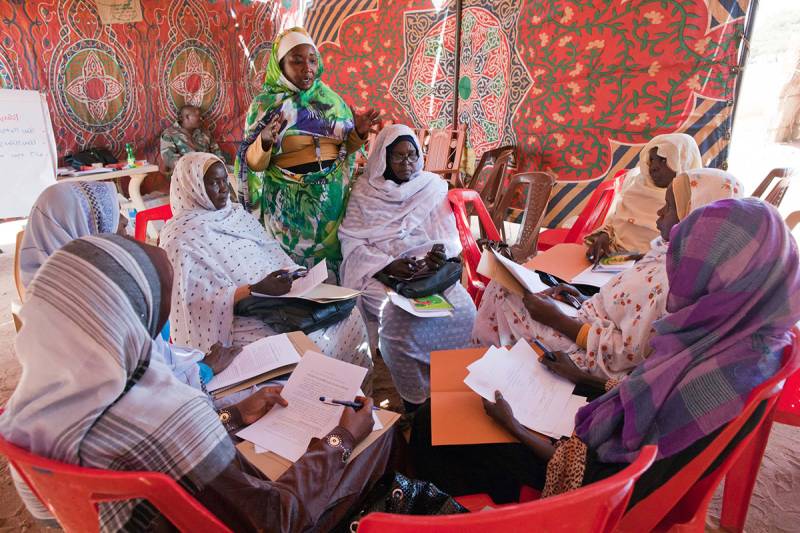Headstrong pursuit of justice can thwart peace efforts

Malha, North Darfur, 2012. Women attending a workshop by UNAMID on UNSC resolution 1325, that reaffirms the role of women in peace negotiations. Photo: Sojoud Elgarrai, UNAMID.
In a new policy note, researchers from the Nordic Africa Institute (NAI) and the South African Institute for Justice and Reconciliation (IJR) give advice on peace negotiations in Africa, why they fail and how to improve them.
One of the authors' policy recommendations is that mediators and other stakeholders involved in the peace-making processes should think twice before habitually disregarding indigenous notions of justice in favour of international justice norms.
“There are numerous cases where peace has been achieved on the basis of injustice, and where the pursuit of justice has thwarted peace”, they argue.
As an example of peace-building processes where indigenous justice systems have played a significant role, the authors – Victor Adetula, Tim Murithi and Stephen Buchanan-Clarke – mention Rwanda’s Gacaca courts, adapted in the wake of the 1994 Genocide. They suggest that more space needs to be created for such initiatives, as well as increased support to ensure their sustainability.
“Peace agreements in Africa may well prove more durable and effective if they are built on indigenous justice systems, which are culturally relevant and enjoy popular support”, they write.
More recommendations in this policy note:
- Peace is not just the absence of conflict, it should rather be seen as the result of a combination of factors, such as gender equality, economic opportunity and access to justice.
- The self-interest lying behind external ‘support’ can take many shapes. It is therefore vital to train mediators to recognise and navigate the interests and influence of external actors in peace negotiations and to ensure impartiality.
- Simply adding more women to peace negotiations will not break male-centric norms. It is more effective to ensure that mediation teams include not only women representation, but also qualified gender specialists who possess the tools to provide the requisite analysis and recommendations.
A deeper explanation of these policy recommendations can be found in the full-text version of the policy note.

